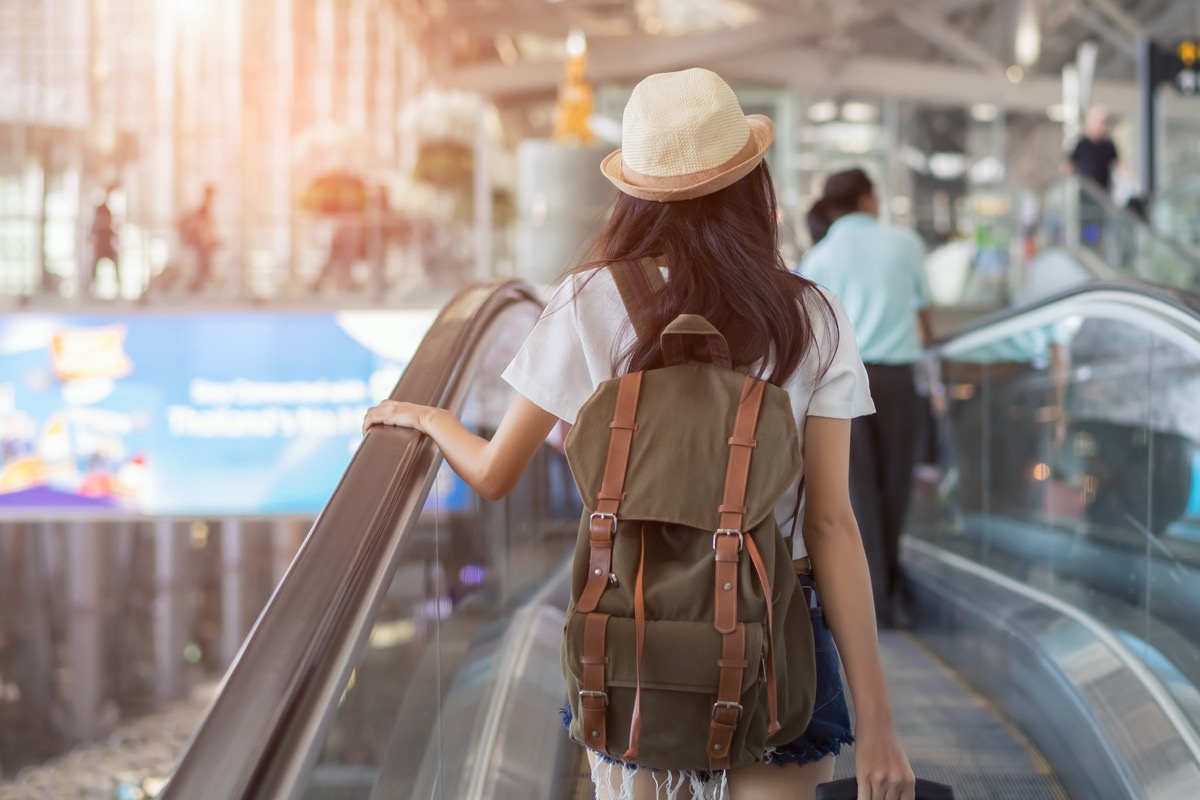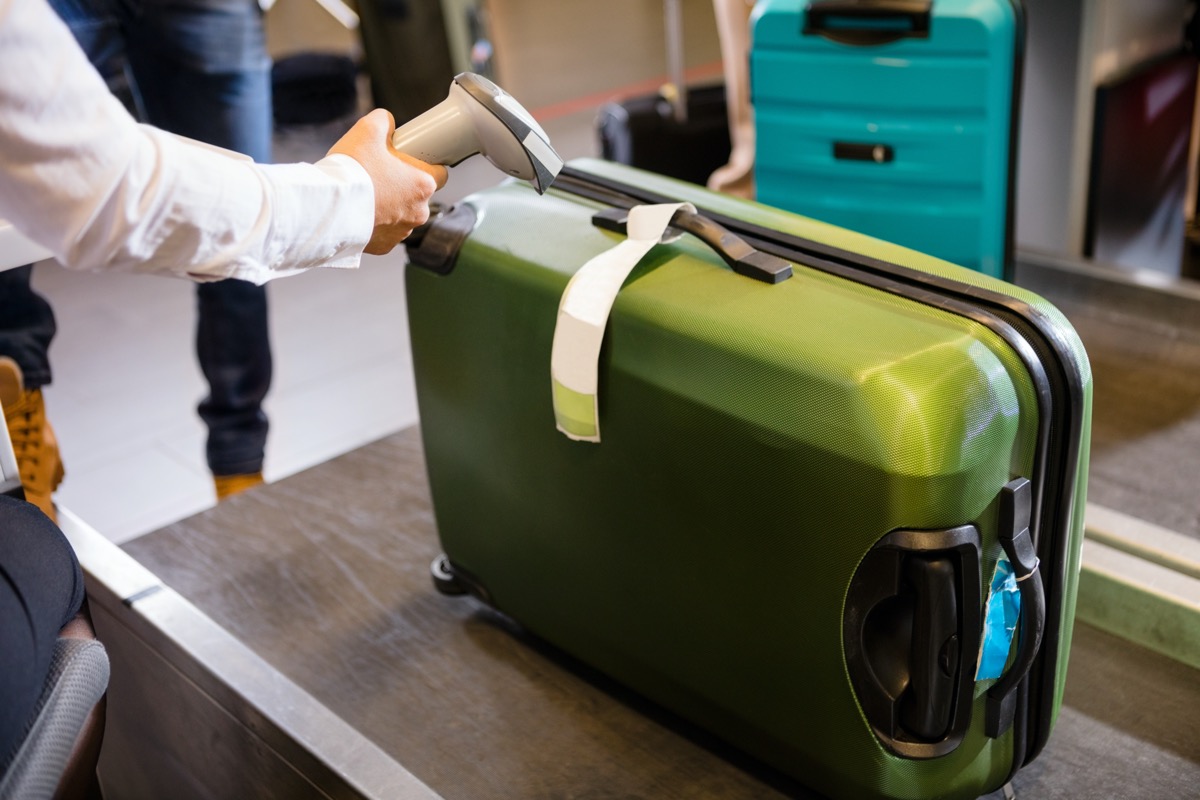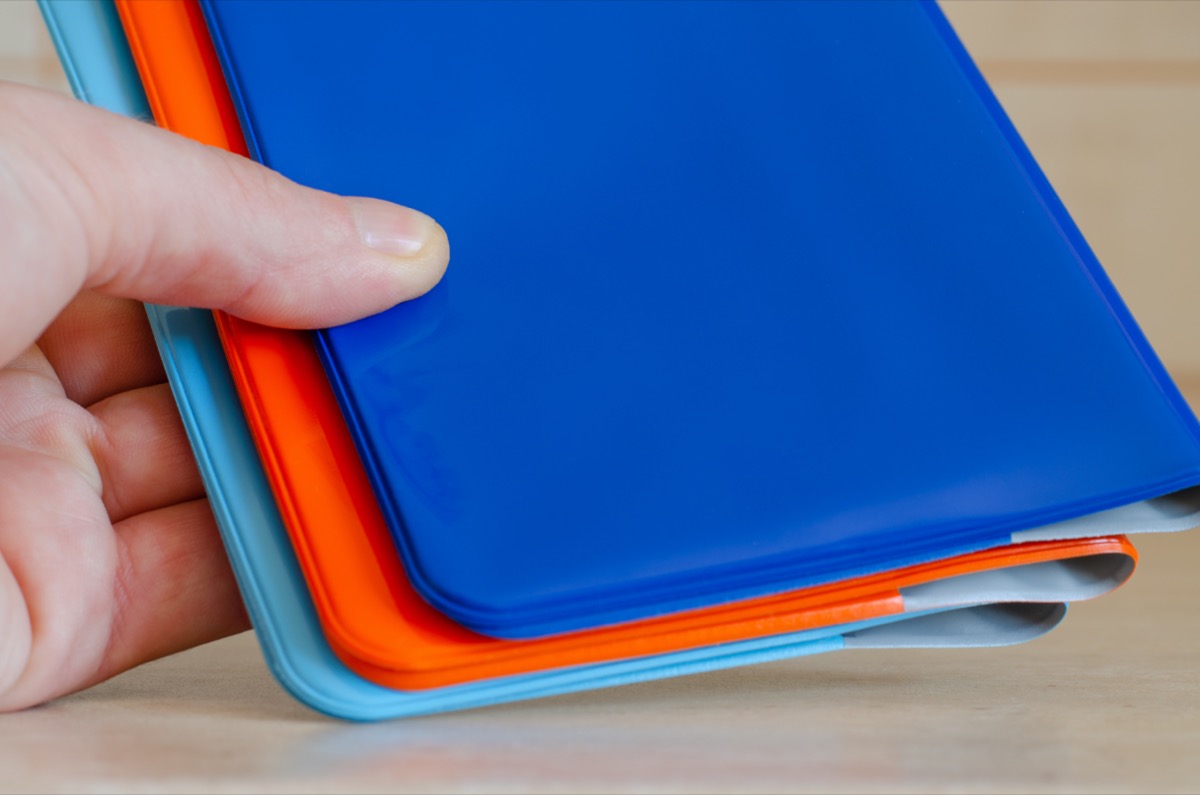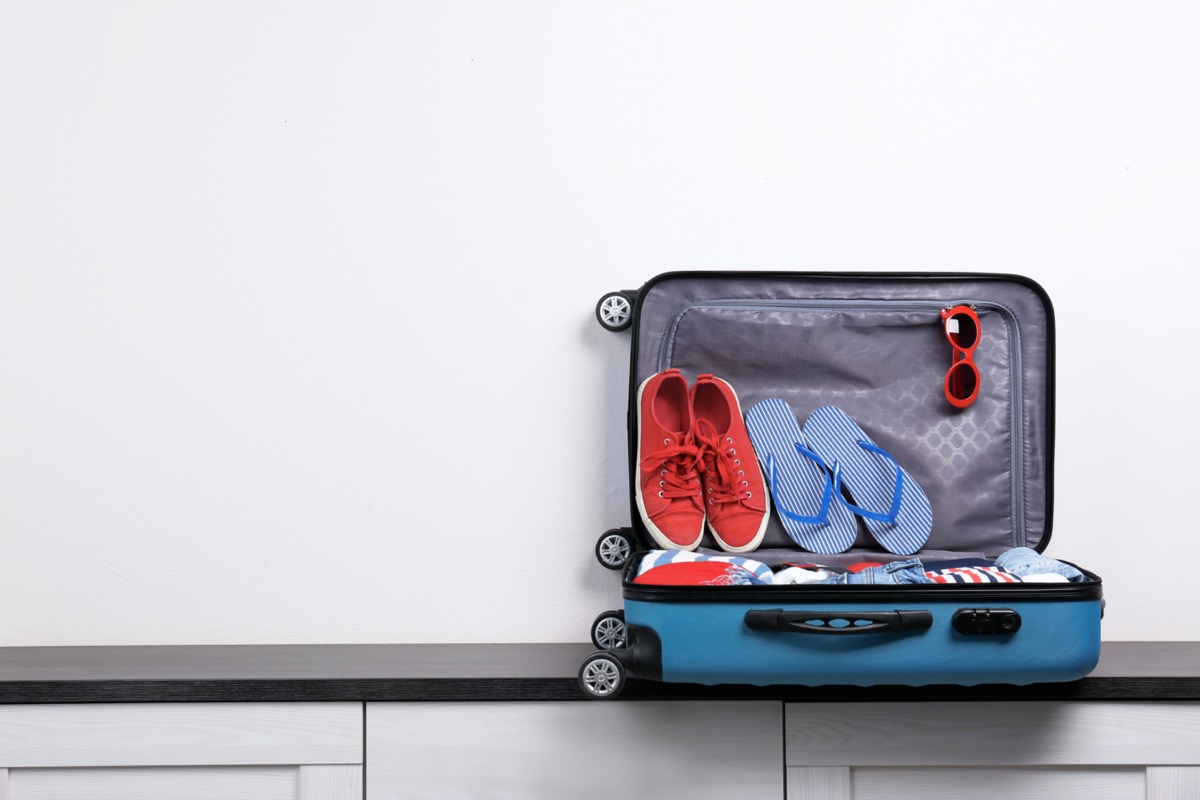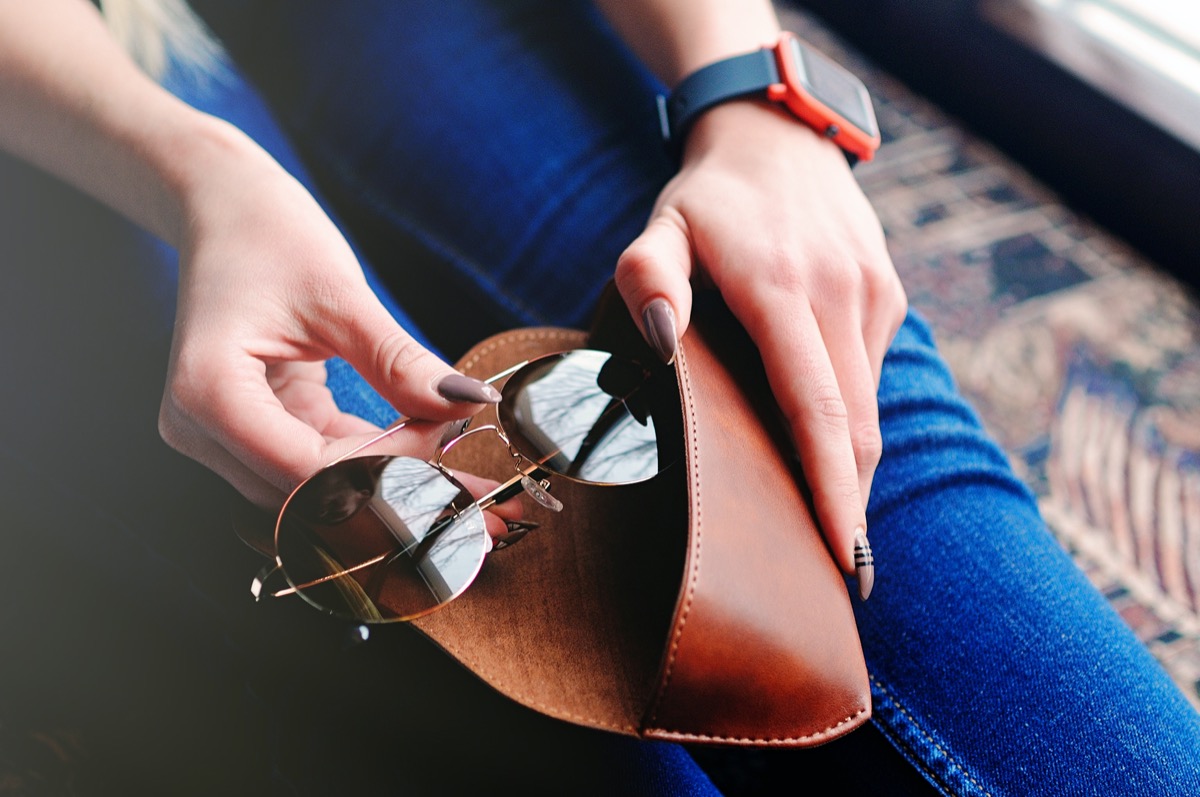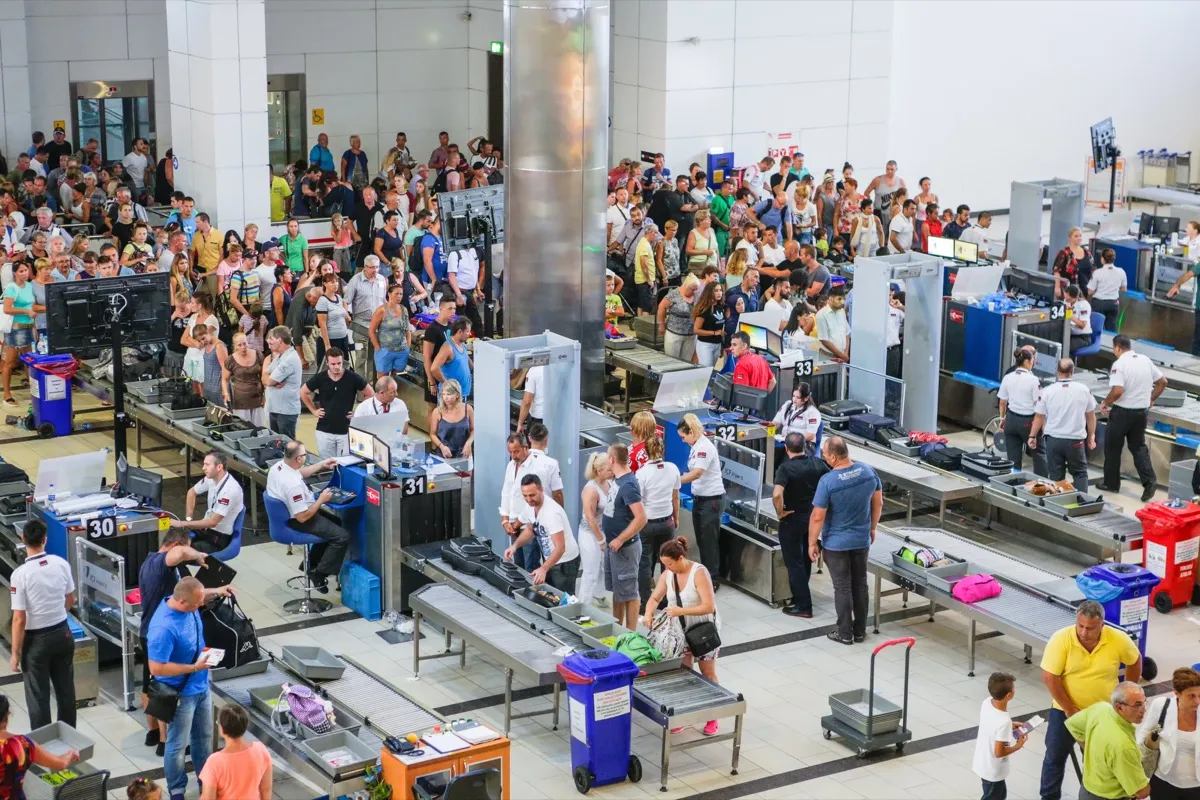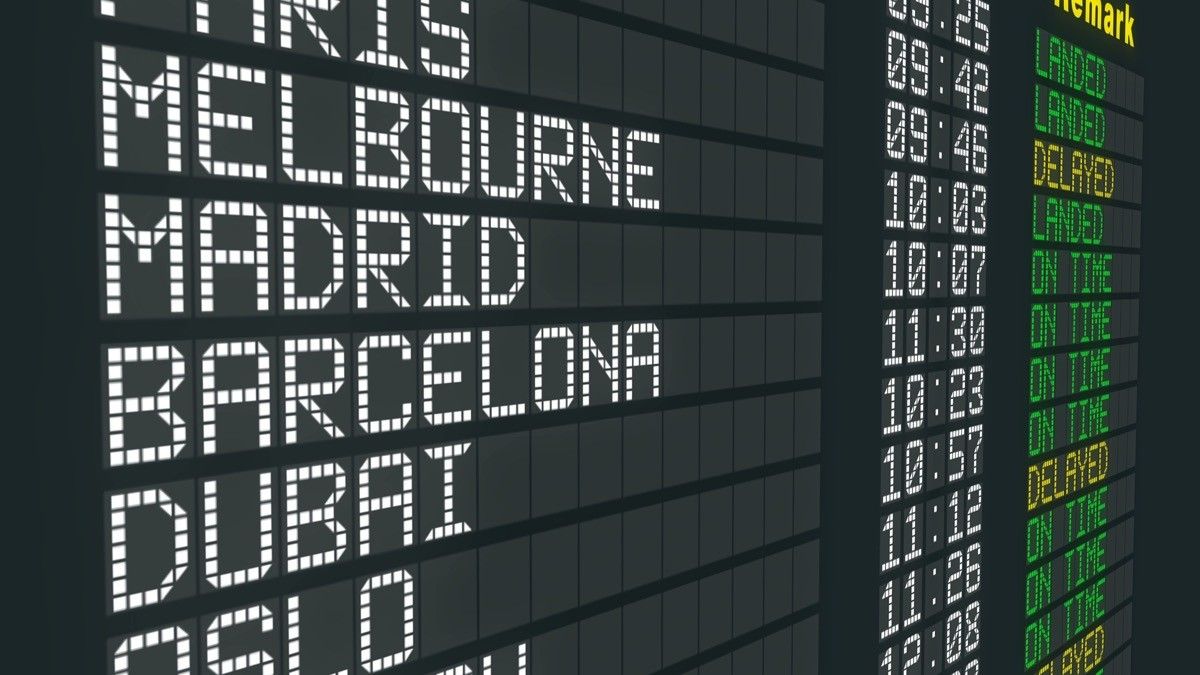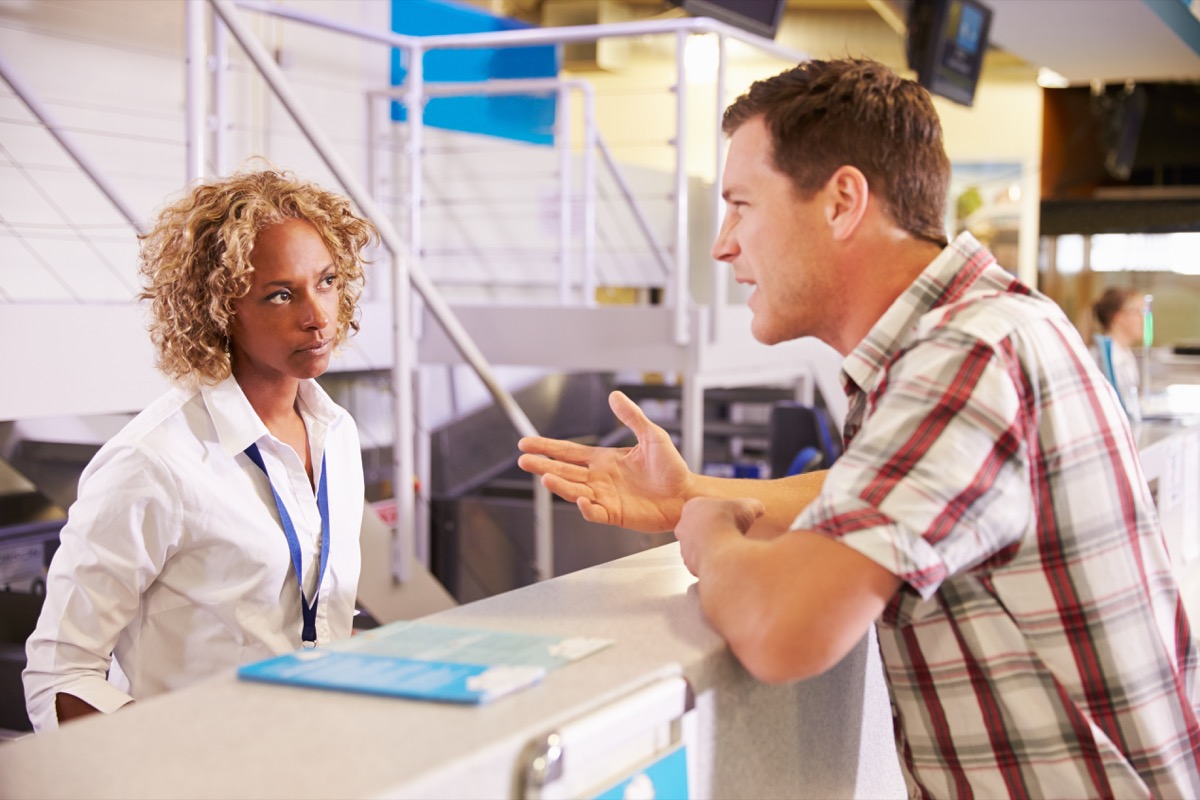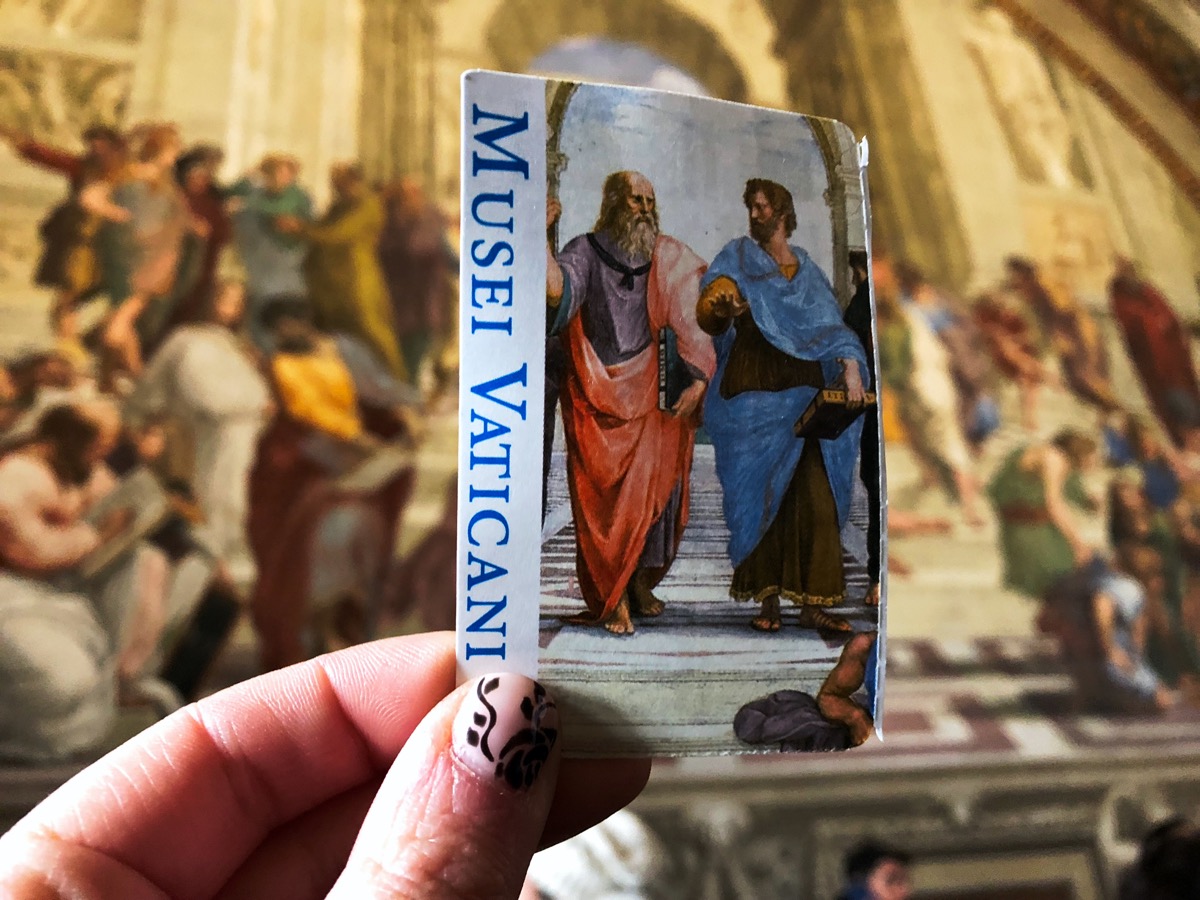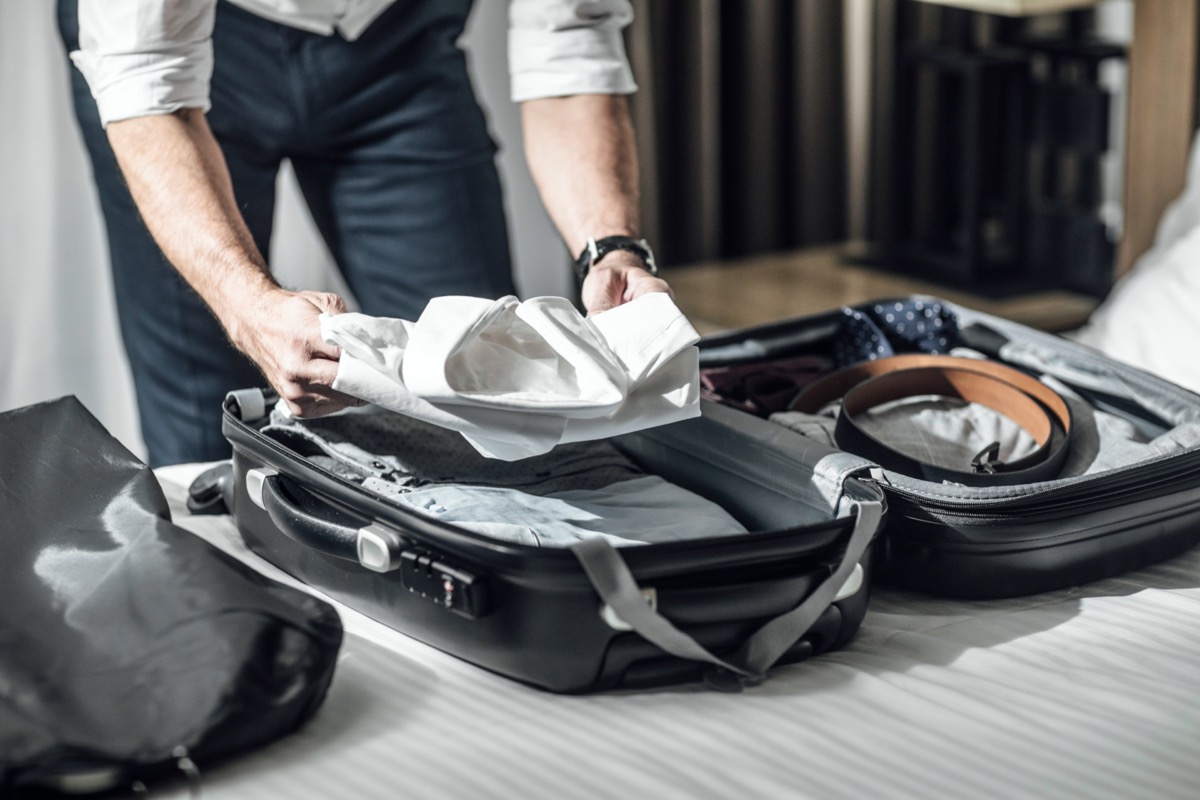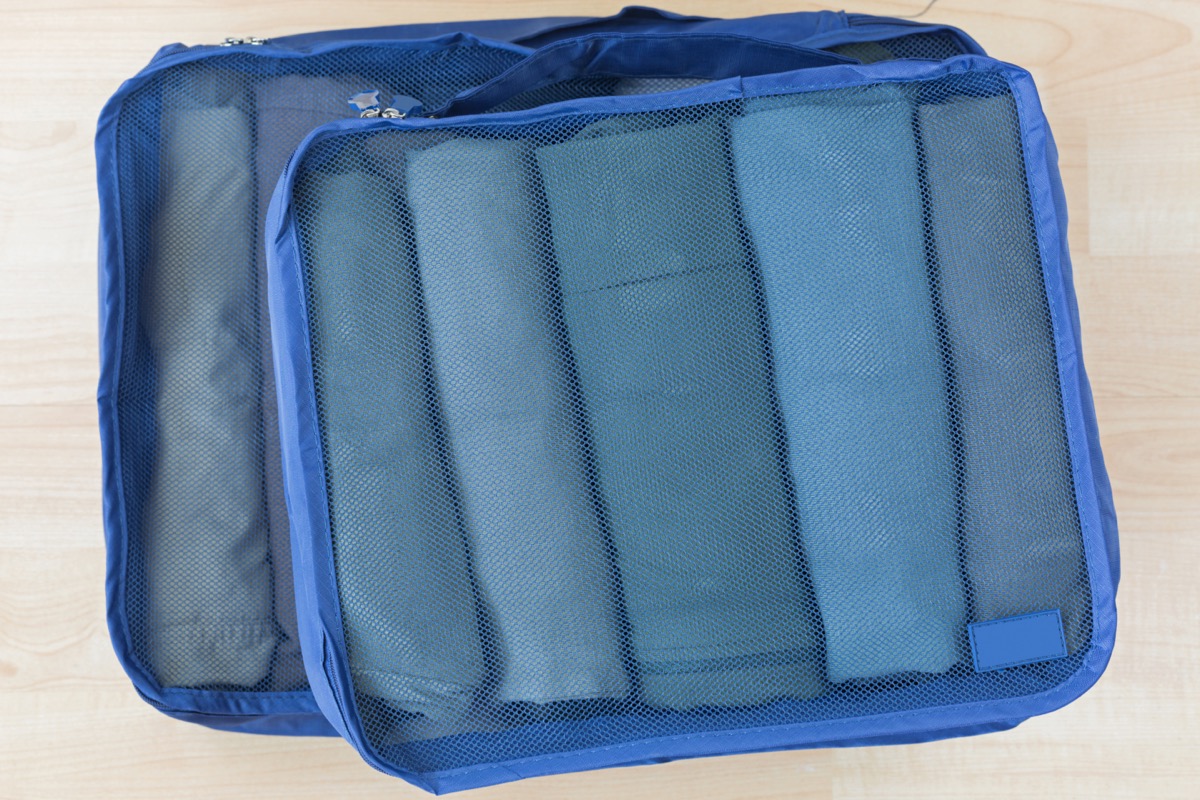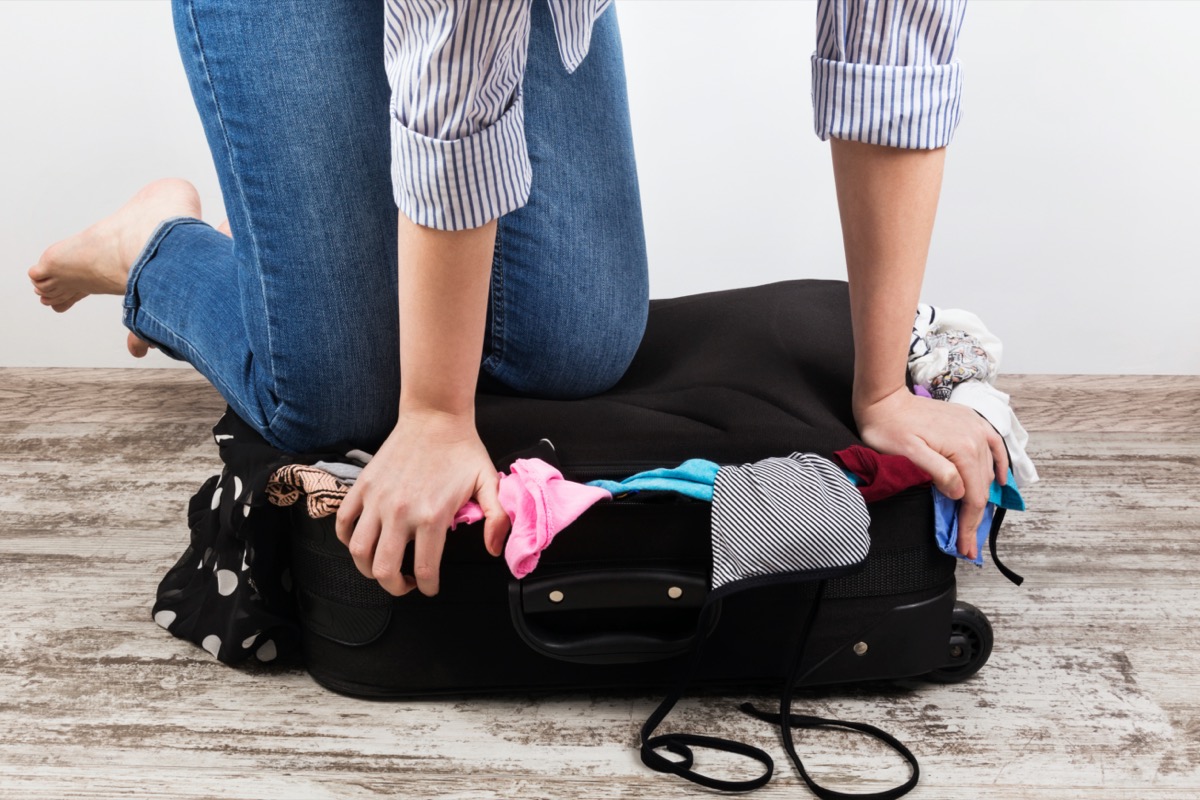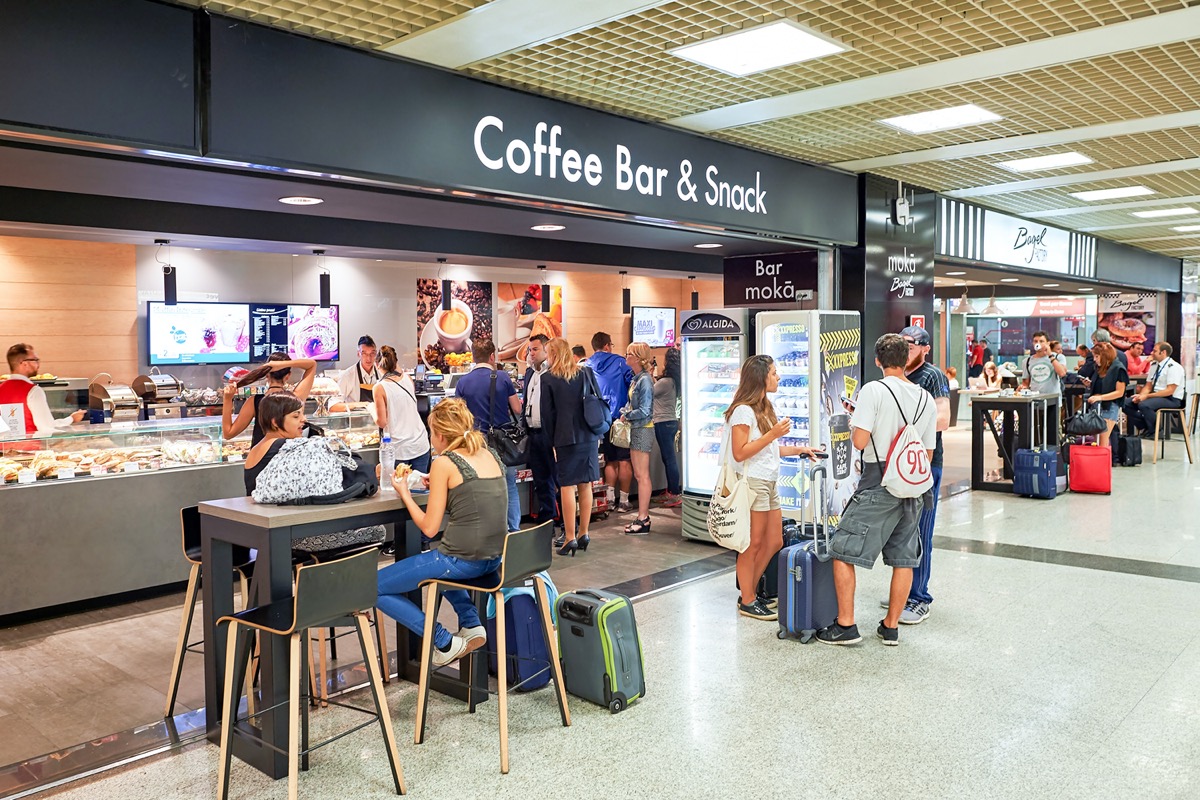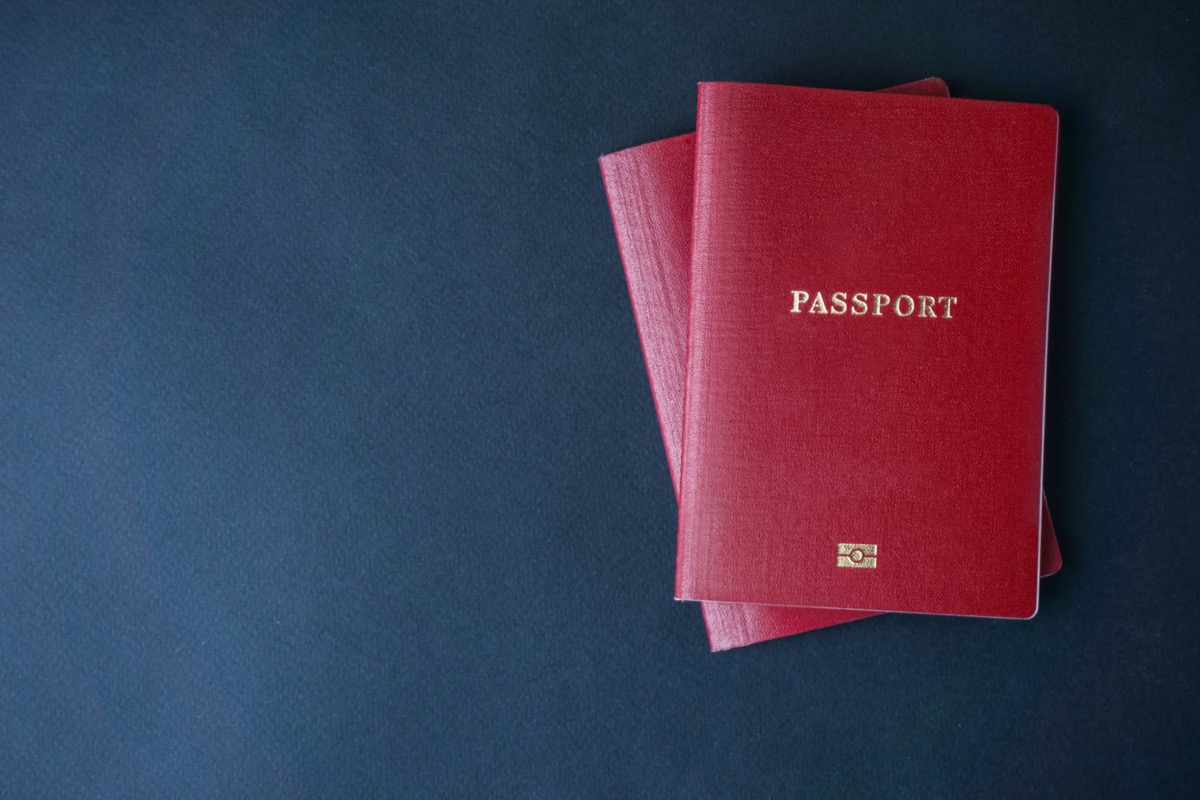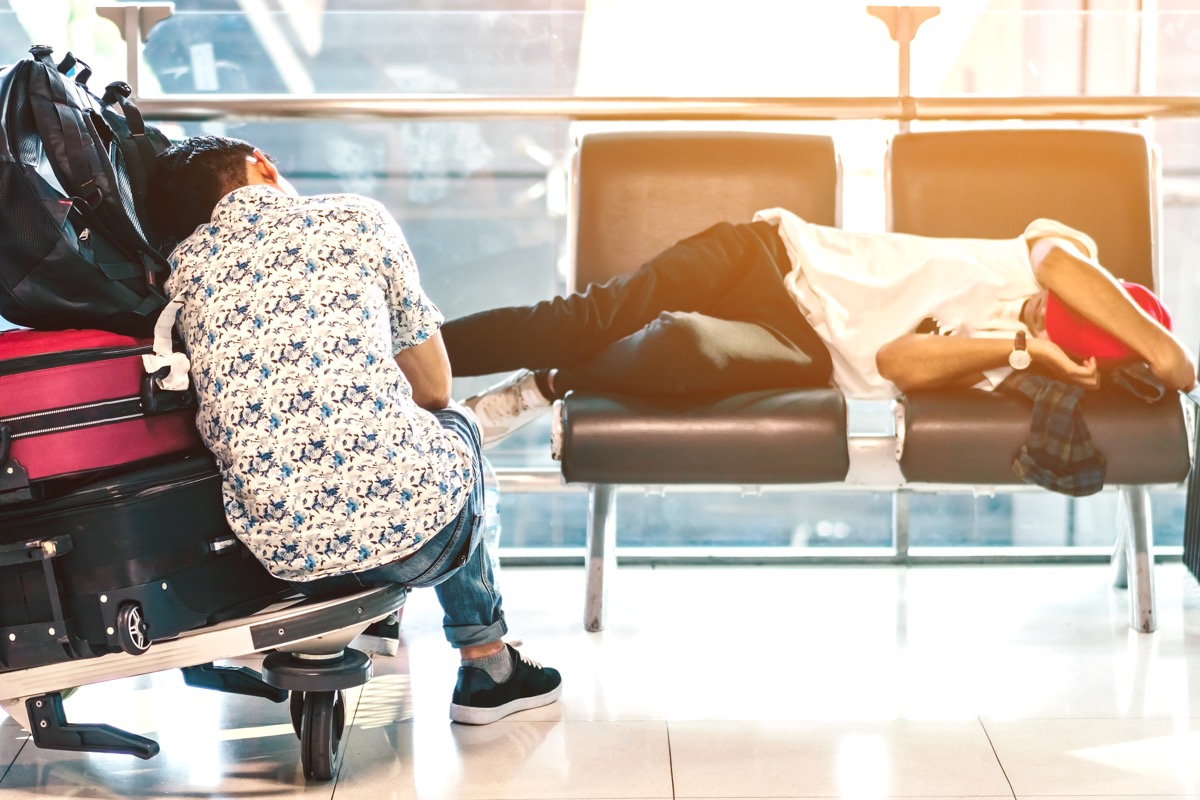Once you’ve found your dream hotel, be sure to read the fine print. From booking fees, to daily hotel resort fees, cancellation fees, and a number of other hidden costs, you can end up paying more than you bargained for. “These hidden hotel resort fees are designed to confuse consumers and distort the actual price,” says Erika Richter, spokeswoman for the American Society of Travel Advisors (ASTA). “Sometimes they’re called ‘facility fees;’ make sure you ask before you book.” If you’re checking luggage, be sure to pack a change of clothes or a versatile outfit in your carry-on (including undergarments and socks). Travel agent Kalyn Franke says, “If your luggage gets lost and takes a while to get to you, you’ll be so grateful that you’ve got a change of clothes ready to go.” On the topic of lost luggage—no one ever thinks it will happen to them. But even if you don’t have a tight connection, a number of factors can cause your bag to get delayed. Amina Dearmon, owner and travel advisor at Perspectives Travel, suggests printing a copy of your itinerary and packing it on top of your checked luggage, so airlines can easily return it to you. “If you’re only in your first destination for a day or two, the airline will know where you’re headed next and [send] your bag to your new location,” says Dearmon. Another helpful tip is to “buy a very colorful and flat passport holder that is easy to find in a flash.” Kim Parizek from Boutique Travel Advisors carries a pink one, which allows her to spot the passport in her carry-on amidst the chaos of customs or security. Whether it’s an amenity pair from a previous hotel stay, or a cheap pair from the drugstore, Betsy Ball, co-founder of Euro Travel Coach, recommends wearing slippers on the plane for comfort and sanitation. “If your feet swell during the flight, you’ll still be comfortable, and you can walk down the aisle of the plane with something on your feet.” If you have an extra case for sunglasses, it can be a nifty way to keep track of your power cords. Travel agent Rachelle Rayner says, “Avoid a tangled mess in your bag by rolling up your phone charger and placing it inside the case.” “After you settle on a destination, make sure you find out when it’s peak season and plan your trip before or after that time,” says Richter. Peak travel times are typically predictable, like spring break, holidays, and summer months. The influx of visitors forces prices to increase during these times, thus traveling in the shoulder season allows for a cheaper and less-crowded getaway.ae0fcc31ae342fd3a1346ebb1f342fcb It’s a no-brainer to research attractions in advance, but don’t forget to look at the timing too (including holiday hours). “Take special note of days when museums are closed. Don’t plan to be in a city for only one day to see a special exhibit and find out later that it is closed that day,” says Ball. She learned this the hard way when she was in Prague. “The only day we had was a Saturday,” says Ball. “What I really wanted to see were the Jewish sites, and they are closed on Saturday, their holy day.” The rule of thumb in the airline industry is to travel in the morning to avoid delays. It’s also more convenient to arrive at your destination during daylight, to take advantage of activities upon landing. This travel agent writes on Reddit, “I have had people book packages online only to find out they don’t arrive at their destination until late, so the whole first day is wasted.” Though this may be unavoidable with some destinations, it’s a crucial element to starting your vacation off on the right foot. Hotels are no longer “just a place to sleep.” These days, people travel specifically to stay at a certain boutique sleep or over-the-top resort. “My tips for clients are always to focus on the hotel first when looking at a destination,” says Duncan Greenfield-Turk, managing director at Luxury London Guy. “It’s where you sleep, on a number of occasions where you eat, and also if you’re entertaining often you want to be able to host drinks before going out.” After booking flights, hotels, and excursions, check that your name on all the reservations and tickets correctly match your ID or passport. “Make sure it is spelled exactly the same!” says Ball. A misspelled name on a reservation can cause delays and even cancellations depending on the airline or hotel policy. Parizek also suggests paying for museum tickets in advance, particularly any experiences that offer a ‘skip-the-line’ fee. “The crowds can be overwhelming as overtourism becomes an issue in most popular destinations. Your time is valuable and waiting in line for two hours to see the Louvre is not a good use of it.” “There is nothing worse than arriving from a long flight and having to deal with taxis and being ripped off,” says Tina Dahmen, a luxury advisor in Bali. “And unfortunately, as we know, this local taxi mafia is present in most holiday destinations.” Ask your hotel concierge to book a car if there’s no shuttle available, or ask your Airbnb host how they recommend getting to the apartment. This may seem self explanatory, but the more you travel, the more you realize you don’t always need everything you pack. Browse your itinerary and check the weather a week before you travel. Then make a list of essentials and outfits you can easily mix and match. Georgina Blasco from Freetour says, “packing light is always a good idea to avoid last-minute, stressful-stuffing situations.” One of the best organizing and space-saving techniques is to use packing cubes. “If you are on a tour and moving from hotel to hotel daily, it is key to have your items packed in cubes so you’re not looking for socks while mulling through sweaters, shirts, and underwear,” Parizek says. Along with your daily medications and emergency prescriptions, Parizek suggests getting a prescription of Cipro; “the frontline treatment for any stomach bugs you might catch.” Whether it’s the stomach flu, traveler’s tummy, or food poisoning, this will help ease the discomfort of getting sick in a foreign place. Blasco also shares that by packing less, she is leaving room for keepsakes from her travels. “One of my favorite parts of taking a trip is buying souvenirs for my family and friends,” she says. “That is what I take into account when packing.” To ensure you pay credit where credit is due, exchange smaller denominations and set that aside for tipping. Do this prior to arriving, as Parizek shares, “I can’t tell you how many times at arrival, I am having to explain that I have no small currency for luggage porters and drivers.” Worried about having an empty wallet? Here’s exactly How Much Cash You Should Carry at All Times. Don’t be that person who asks for a pen when the customs forms come around. Silvana Frappier, owner and travel advisor at North Star Destinations, says to bring two just in case! Another pro tip: Consider a click-top pen, so you never have to worry about losing a cap. It’s always wise to look into airline policies on extended layovers. “Some airlines give you allowances such as meal and hotel vouchers for layovers exceeding eight hours,” Rayner says. “This is a way for you to be able to check another city off of your bucket list.” Make two copies of your important ID documents. Then, put your actual passport in the hotel safe, carry one copy with you at all times, and give the other to a friend or family member you’re traveling with. “You may need them at the most unexpected places to prove your credentials,” says Saurabh Jindal of Talk Travel App. If you aren’t able to exchange small denominations of cash prior to your trip, or from the local ATM, Jindal says supermarket self-service machines and cashiers can usually break large currency notes that small vendors typically don’t accept. If you’re coming off a long-haul international flight, you want to adjust to the time zone, both physically and mentally. This means taking a light stroll in the sunlight, and not booking any strenuous activities for the first day. “Ease into your plans so you have more flexibility in the beginning and more tightly scheduled activities at the middle or end of your trip,” says Franke. It’s no fun to come home to a messy house after a trip of a lifetime. Dahmen says, “Before you leave your home [for the] holiday, make sure you leave it cleaned and tidied.” Yes, it’s one last step in leading up to the trip, but it’s one less chore upon your return. To save time, money, and gain access to exclusive experiences, this is the number one trip-planning tip from agents across the board. Jessica Copquin, a luxury travel advisor at Tzell Travel Group, says, “Consider working with a trusted travel advisor to book your hotel… it may lead to some free amenities. As an advisor, we send a note to the hotel as soon as a reservation gets booked to VIP our travelers. This is another benefit of working with an advisor as you get stellar treatment while on vacation.” Whether you plan to use an advisor for specific reservations, like hotels and restaurants, or for an entire itinerary, you have options. To further help you plan your next getaway, we’ve got you covered with the 15 Facts About Booking Cheap Flights Every Traveler Should Know.

